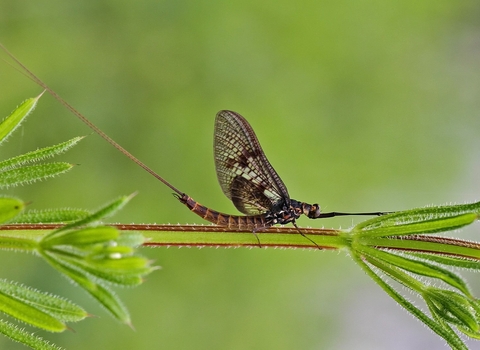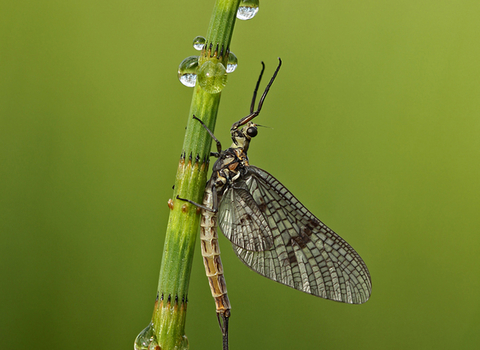
Common Mayfly ©Margaret Holland

Common Mayfly ©Jon Hawkins
Common mayfly
Also known as the 'green drake mayfly', the common mayfly can be found around unpolluted wetlands, such as lakes and rivers. It has transparent, lacy wings and three long 'tails'.
